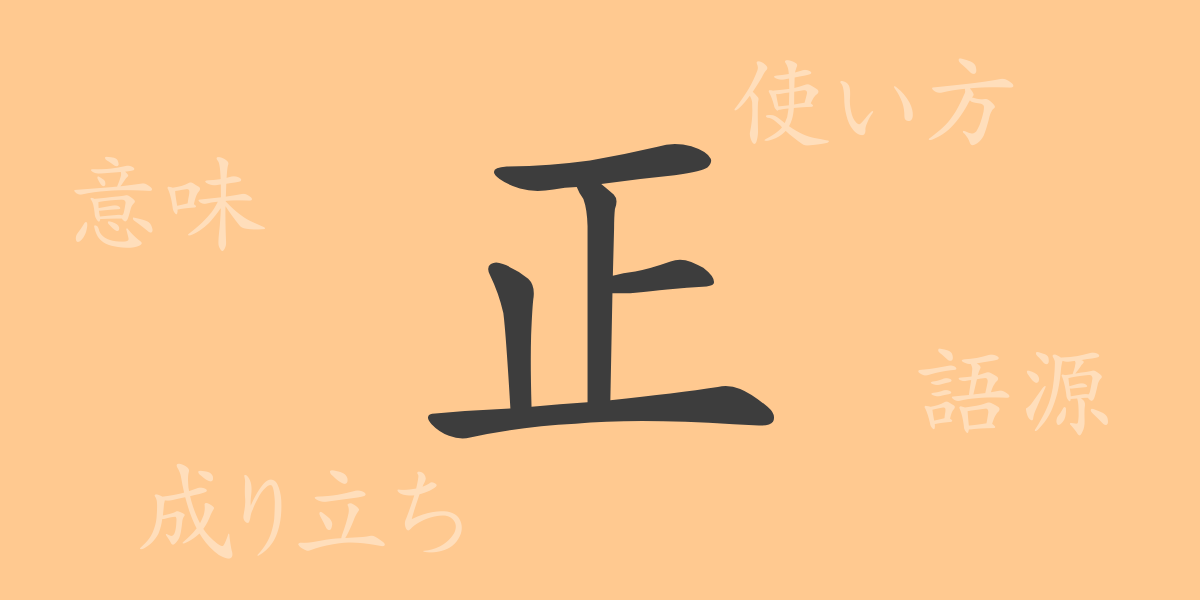The kanji characters of Japanese language not only enrich the communication but also hold deep historical and meaningful roots within Japanese culture. Among these, the commonly used kanji ‘正’ (しょう) plays a fundamental role. This article delves into the origins, meanings, contemporary uses, and related idioms of ‘正’, revealing the historical and semantic layers behind its everyday usage.
Origins of 正
The kanji ‘正’ originated in ancient China, initially representing the act of divination with the component ‘卜’ (ぼく, meaning to divine) and the concept of halting with ‘止’ (とめる, to stop). This combination implied ‘the correct path’, evolving to signify ‘correct’ and ‘accurate’. The character also served as a standard for time and direction, underlining its role as a benchmark in various contexts.
Meaning and Usage of 正
‘正’ conveys notions of correctness and accuracy, such as in ‘正しい’ (correct), ‘正直’ (honest), and ‘正確’ (accurate). It’s used to denote time and sequence in terms like ‘正午’ (noon) and ‘正月’ (New Year), and also embodies moral correctness in words like ‘正義’ (justice) and ‘正道’ (right path).
Readings, Stroke Count, and Radical of 正
The kanji ‘正’ offers a glimpse into the linguistic richness of Japanese through its various readings and structure:
- Readings: On’yomi ‘セイ’, ‘ショウ’; Kun’yomi ‘ただしい’, ‘ただす’, ‘まさ’
- Stroke Count: 5 strokes
- Radical: Stop (止)
Idioms and Proverbs Involving 正
‘正’ features in many idioms and proverbs, reflecting its significance in Japanese ethics and values. These include:
- 正直 (ぜっしょく): Being truthful or such a person.
- 正義 (せいぎ): Actions or attitudes that are just and lawful.
- 正解 (せいかい): The correct answer to a problem.
- 正気 (しょうき): Being in a state of normal mental health.
- 正念場 (しょうねんば): A critical or decisive moment that determines success or failure.
These expressions are deeply embedded in Japanese societal norms and are commonly used across everyday conversations, literature, and even in business settings.
Conclusion on 正
The kanji ‘正’ encompasses a wealth of meanings and applications far beyond its simple appearance. It symbolizes essential societal values like righteousness, accuracy, and honesty, pivotal for maintaining social order. Through this article, we hope you have gained a deeper understanding of ‘正’, appreciating its historical depth and significance in enriching Japanese language expressions.

























